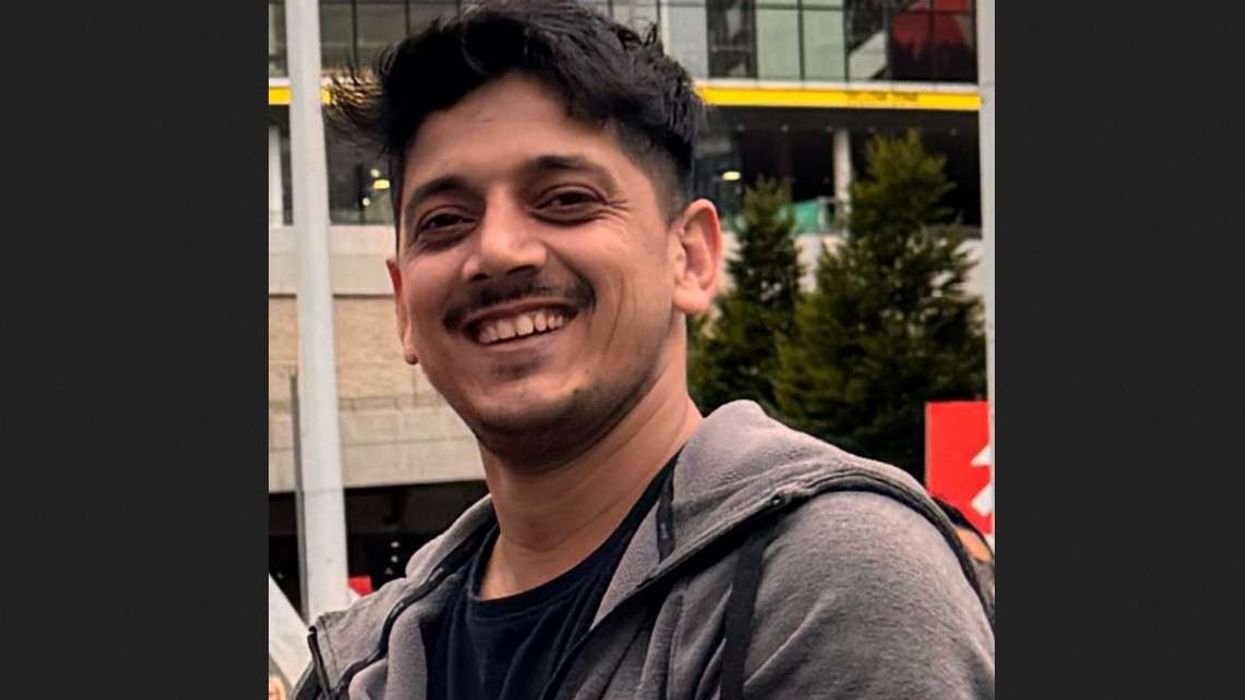THIS year’s Chelsea Flower Show from May 20-25 had a great deal to interest British Asian visitors, ranging from the WaterAid Garden to a stall dealing for the first time with Indian orchids.
King Charles, who toured Chelsea on Monday (20) with Queen Camilla, would have taken note of all the Royal Horticultural Society is doing to use gardens and gardening to heal mind and body.
For example, there was a garden with a wild meadow look put together by Bowel Research UK, which has the motto, “Let’s end bowel cancer and bowel disease.”
Eastern Eye was told the garden has edible plants and trees – Yellow Lupine, Sweet Cicely, Dill, Common Columbine, Sweet Violet, Autumn Olive, Elderberry, Field Maple and Common Hawthorn – that “offer a myriad of gut health and microbiome benefits”.
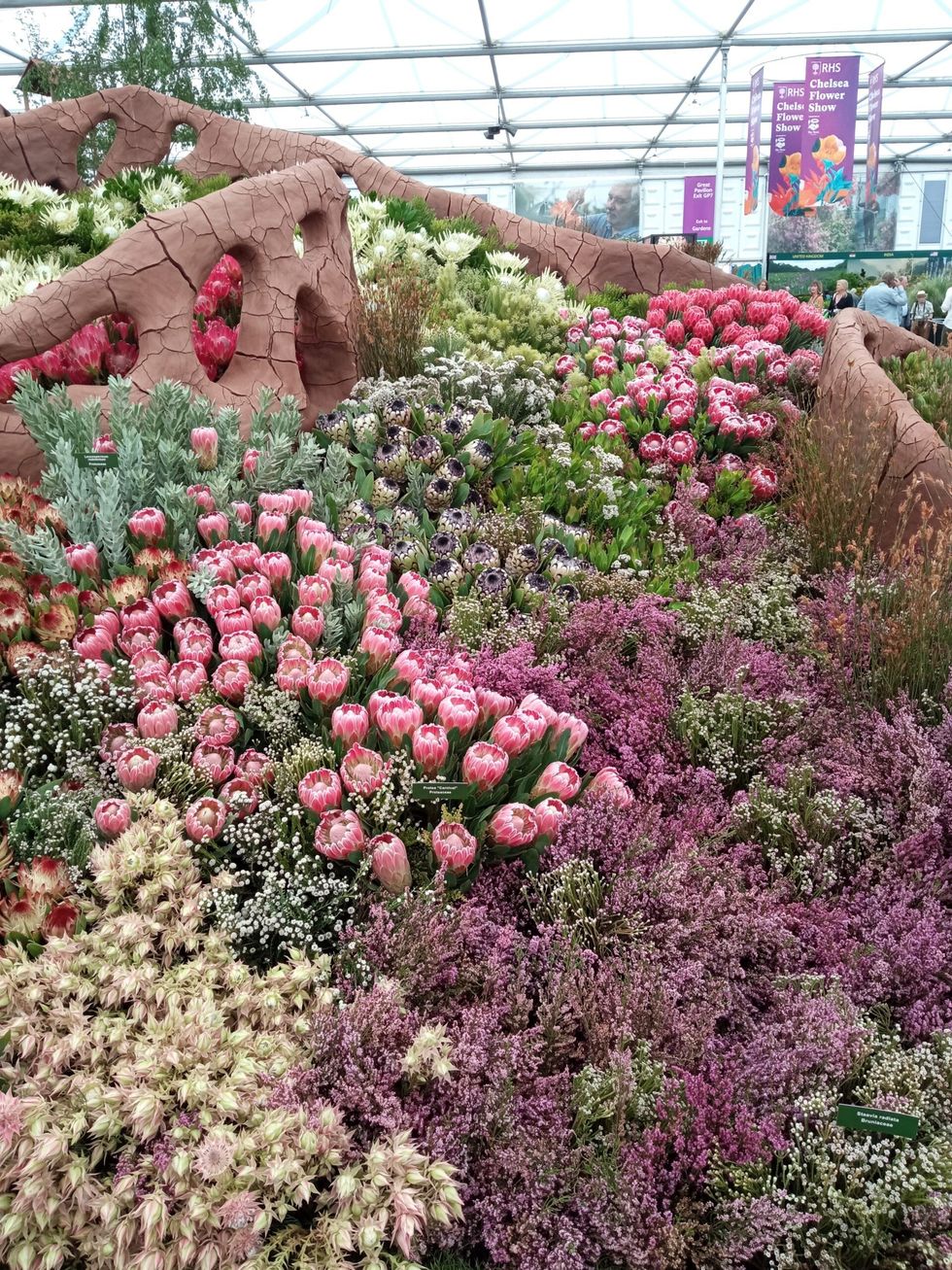
The charity said: “We want the garden to inspire people to rewild their diets, their gardens and their relationship with the land. The planting takes inspiration from wild meadows, with a mix of ornamental grasses and edible perennials, offering a harvest for both people and wildlife.”
A theme running through Chelsea is the need to make the best use of rainwater.
At the WaterAid Garden, designed by landscape artist Tom Massey and architect Je Ahn, a steel structure was shaped so as to funnel the rainwater through hollow uprights into the ground.
Gurvinder Kaur Gregson, who has been the community, events, and education team lead at WaterAid since June 2019, shielded herself from the sun with an umbrella embedded with plants.
She said: “We are an international charity that works in 27 countries, including India, Pakistan and Bangladesh. I am Punjabi myself. In Bangladesh, the salt water from the incoming sea is polluting the soil.”
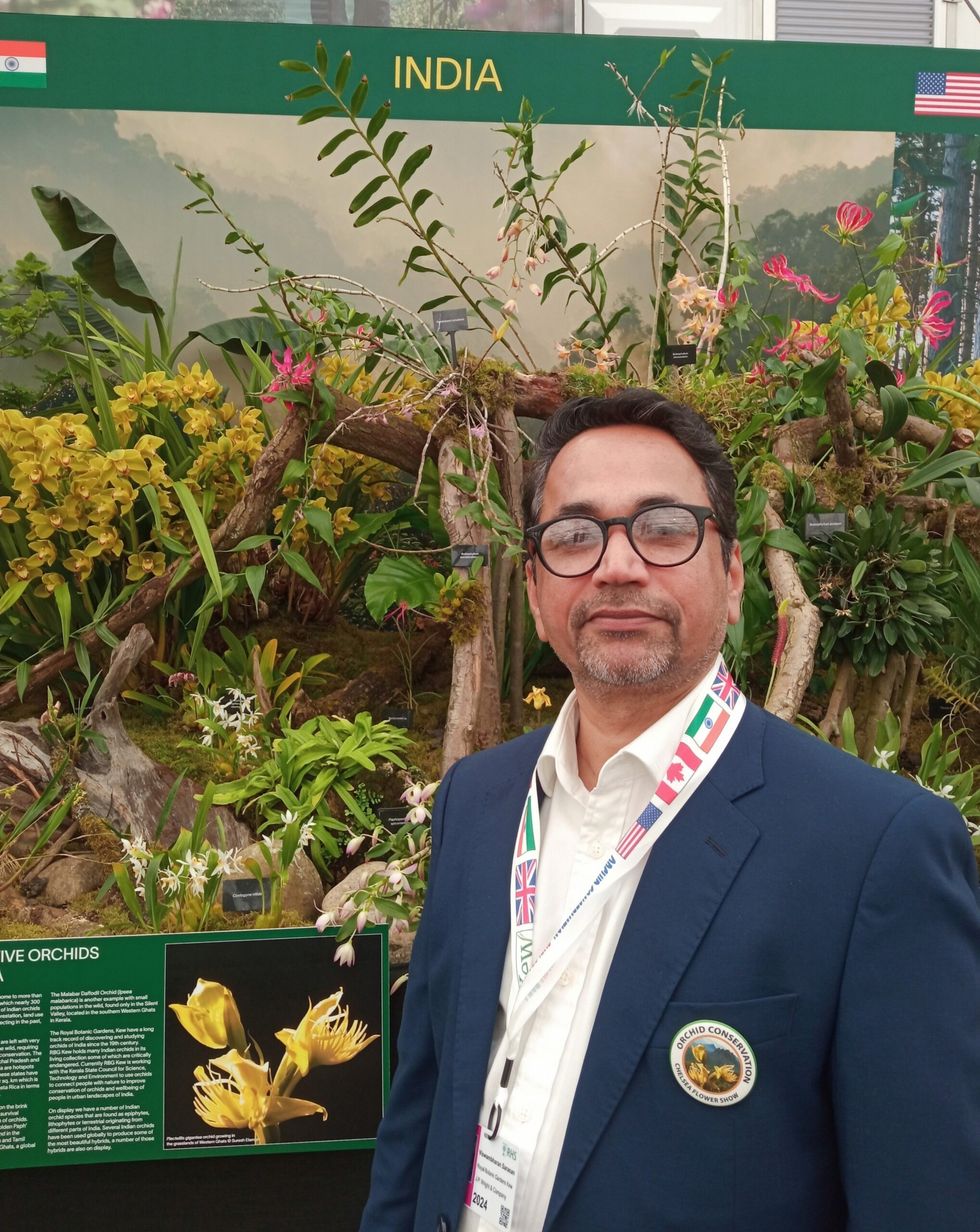
According to WaterAid: “Almost one in ten people globally don’t have clean water close to home, and climate change is making it worse. A staggering 90 per cent of all natural disasters are water-related, with more frequent and extreme floods polluting water sources and droughts drying up springs. In the UK, we’re also feeling the effect of heat waves, drought and flooding. And as climate change continues, our clean water supply is becoming less reliable. The WaterAid Garden shows how innovation can help us all adapt to an unpredictable future.”
The garden was visited by the actress Indira Varma, who described the shortage of water globally as an injustice that “hits women and girls hardest as they often carry the burden of collecting water, which takes up valuable time that could be spent in school, earning an income, or with family”.
Key plants that have been chosen in the garden to suit varying conditions – from very wet to very dry – include the Alder tree, Water violet, Bogbean, Field maple and Red Yucca.
It is now a rule at Chelsea that after the show ends, the gardens have to find reincarnation elsewhere. The WaterAid Garden is expected to be moved to RHS Wisley. Nearby was the Stroke Association’s Garden for Recovery, where the meandering paths and the garden were designed to help patients. This garden will be moved to a plot near Leeds Hospital.
An organisation called Freedom from Torture designed a “sanctuary for survivors”. It had a communal cooking area with a handcrafted bread oven of the kind popular in the Middle East. It was surrounded by a sunken seating area.
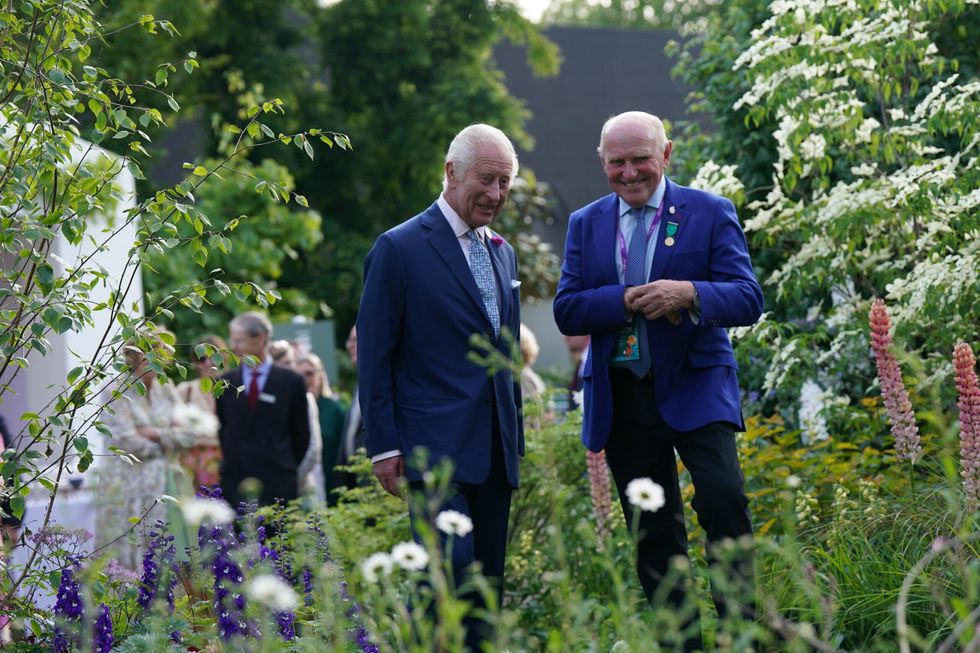
The garden, containing a strawberry tree, a fig tree, a shrub rose, black cumin and French lavender, was where “horticultural therapy will help to heal and restore survivors of torture on their journey to recovery”. The plants “are survivors able to tolerate harsh conditions”.
There is also a garden made with salvaged and repurposed material by Children with Cancer UK.
The charity said: “Families affected by childhood cancer need a moment of reflection: this garden offers them respite from the unimaginable. Breeze-brushed Briza media (common quaking grass) adds to the restful, reflective atmosphere.”
This year’s Chelsea Flower Show has an international touch. The Golden Falls of Grenada displayed stunning plants from the Caribbean. There was a Cape Floral Kingdom from South Africa. And there was a Japanese garden designed by Paul Harris of Brookfield Plants of Ashford, Kent. His large Carp fish, flown in from Japan, are now his pets. They were certainly a draw at Chelsea. His garden had Bonsai and Hosta.
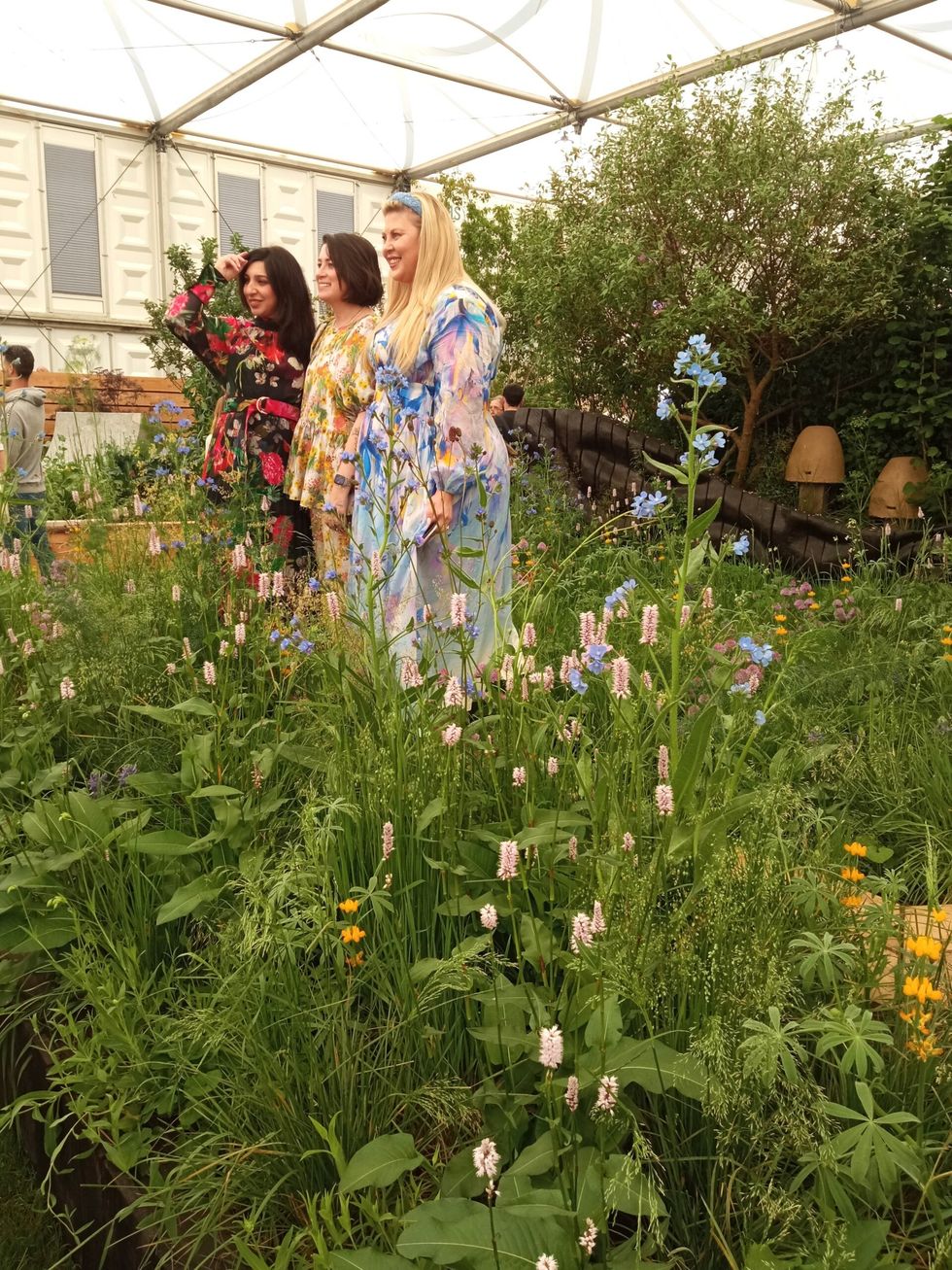
A section on orchids had representation from the UK, North America and India.
Viswambharan Sarasan, who is a senior scientist at Royal Botanic Gardens, Kew, told Eastern Eye: “In India, orchids are found in the Himalayas, in the Western Ghats and in Kerala. There are 1,200 spies of orchids in India, and 300 of them are found only in India. Orchids are found in the Andaman Islands, which is rich in diversity. We are working with our colleagues in India.”
Hybrids “are now used in weddings if you want to show a bit of class,” Sarasan quipped. “In terms of horticultural value, orchids are the most expensive plants.”
A note on “the incredible diversity of orchids in India” said: “India is an orchid paradise. Western states like Rajasthan and Jammu & Kashmir have fewer species, while eastern states such as Arunachal Pradesh and Assam are incredibly species-rich. Orchid diversity in India correlates strongly with rainfall and mountainous regions. However, deforestation and over-collection and traditional medicine have endangered many orchid species. Conservation efforts are essential to prevent the extinction of the species.”
Despite the serious issues tackled at Chelsea this year, the place was full of fragrant roses, clematis, alliums, marigolds, and spectacular chrysanthemums.
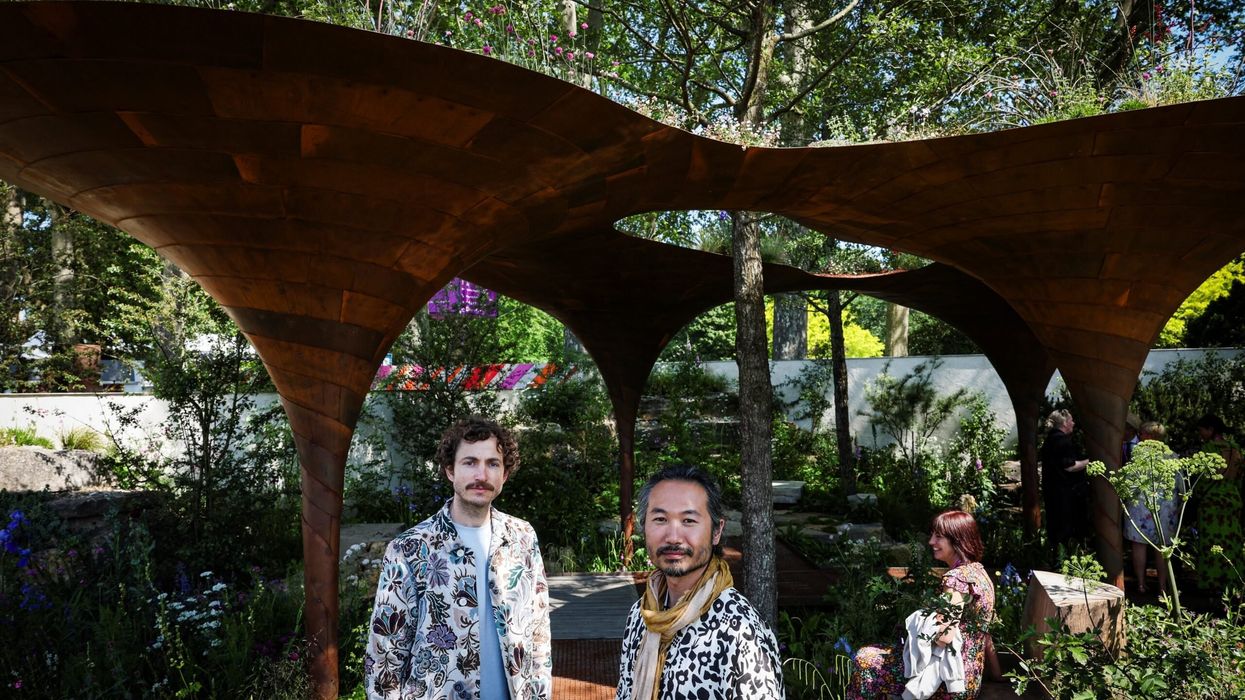





 Channi Singh OBE — founder and frontman of the pioneering bhangra band AlaapChanni Singh
Channi Singh OBE — founder and frontman of the pioneering bhangra band AlaapChanni Singh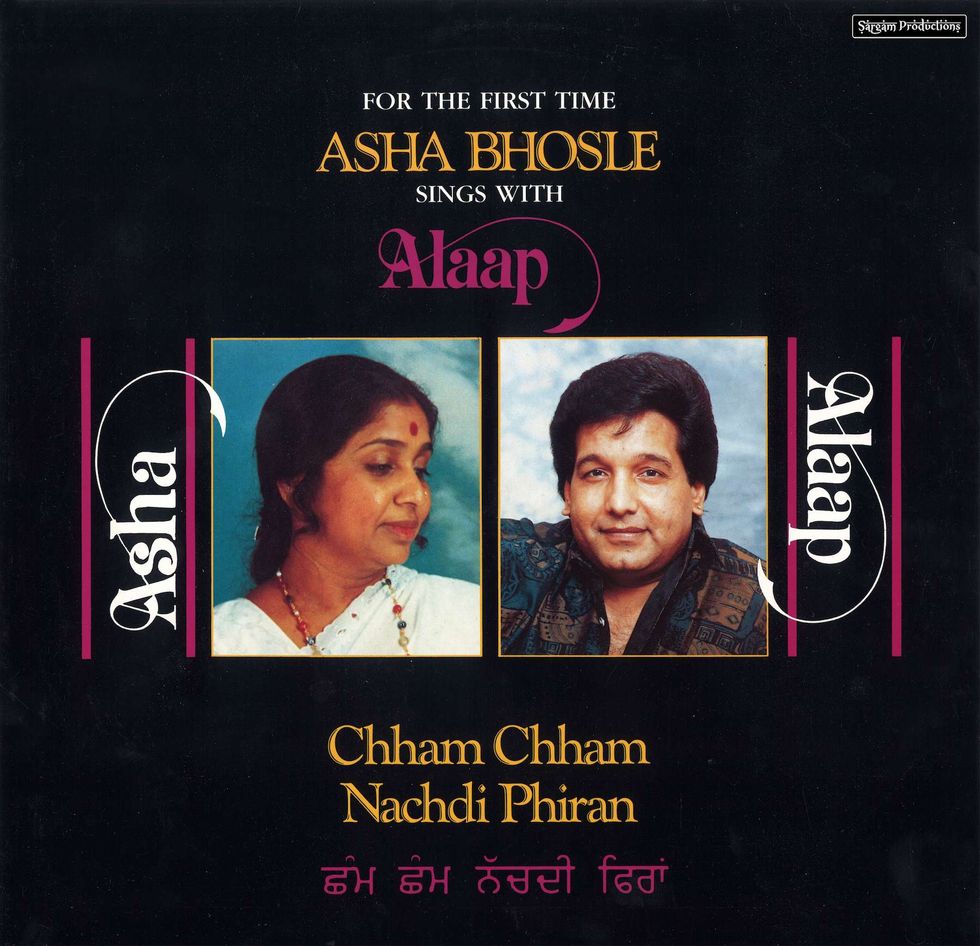 Chham Chham Nachdi Phiran (with Asha Bhosle)Channi Singh
Chham Chham Nachdi Phiran (with Asha Bhosle)Channi Singh Channi Singh with Feroz KhanChanni Singh
Channi Singh with Feroz KhanChanni Singh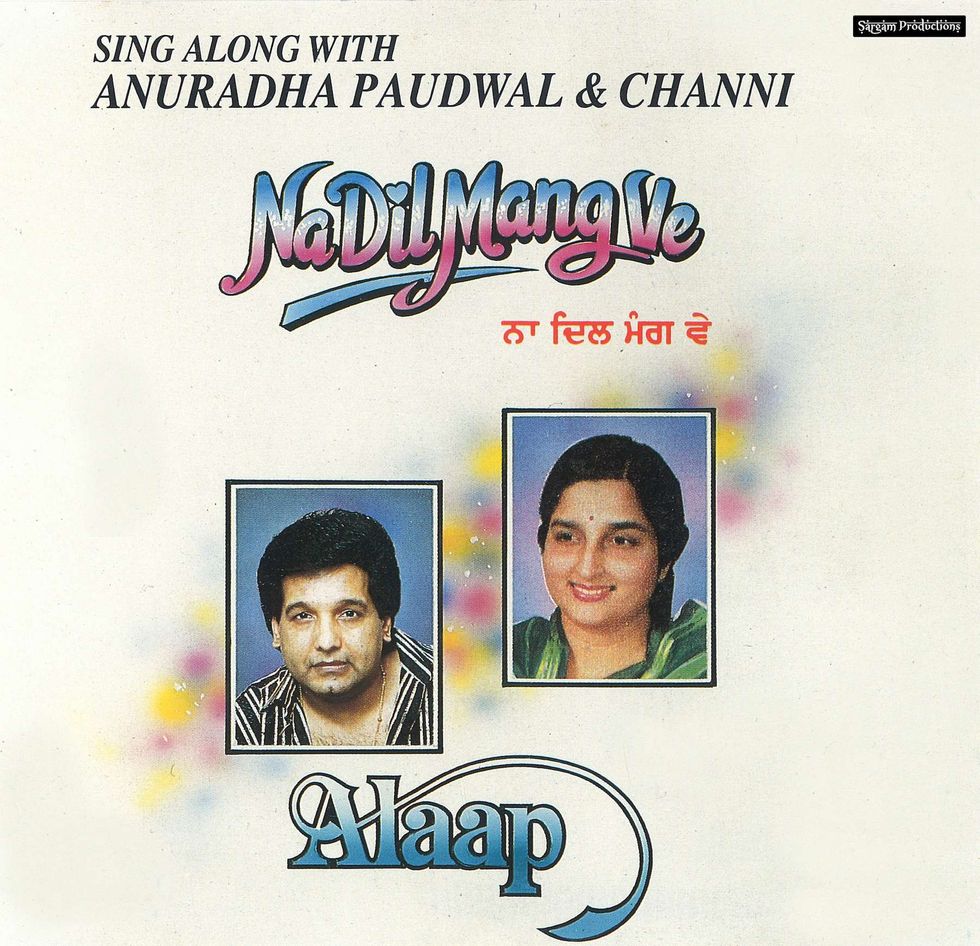 Na Dil Mang Ve (with Anuradha Paudwal)Channi Singh
Na Dil Mang Ve (with Anuradha Paudwal)Channi Singh




